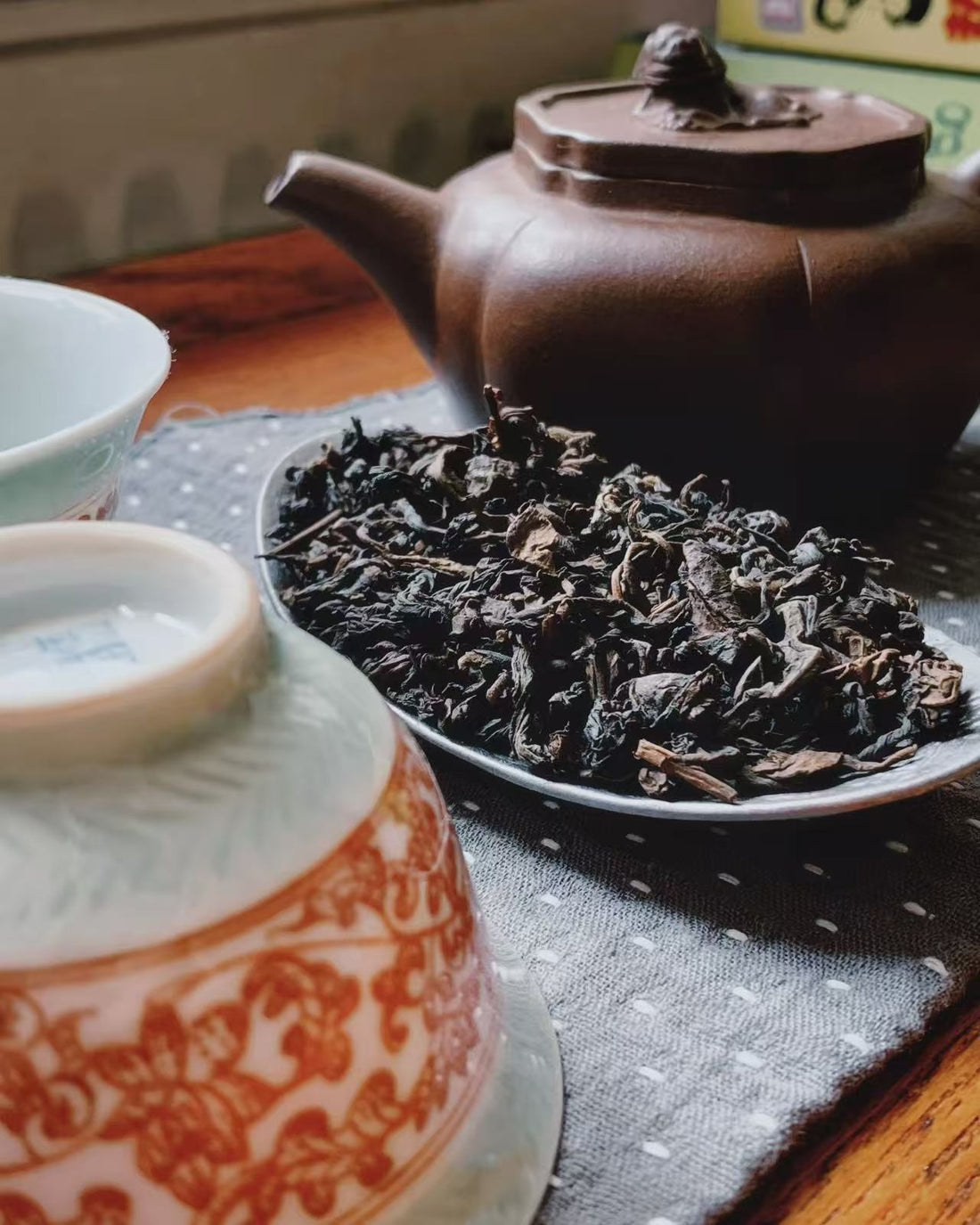
Aged Tea Chronicles : 80's Anxi Oolong tea
Share

In 2005, I made my second trip to Longjuan Tea Mountain in Anxi to delve deeper into the art of tea-making. My friend’s third uncle, a traditional tea farmer, was delighted to see us return and invited us to visit nearby tea gardens and processing factories to assess the quality of other farmers’ products. We hopped into a small truck, crossed several mountain ridges, and first arrived at a relatively large-scale plantation and processing facility. Their teas followed the trend of that time—low-fermentation oolongs with a sour finish. We weren’t particularly interested in this new style. Next, we visited a Taiwanese-run oolong tea factory producing various Taiwanese-style oolongs—decent products, nothing extraordinary. The host treated us to a lavish dinner and provided several tea samples to take back for our friends and family to try. On the way back to the village, we discussed the traditional processing methods of Anxi oolong teas. Third Uncle mentioned that, in the past, pure Tieguanyin varietals were rare. It wasn’t until the mid to late 1990s that large-scale planting of Tieguanyin became common in Anxi’s tea villages. Before that, villages cultivated varieties like Sezhong, Benshan, Maoxie, Huangjingui, Meizhan, Baxian, Wulong, and Qilan. In their Longjuan village, Meizhan was the most prevalent.

After returning to the village, we continued participating in tea processing activities and sampled teas at various stages until the early hours. After a late-night snack, we each rested. Unexpectedly, the next morning, Third Uncle brought over a large bag of tea as a gift. Upon inquiry, we learned it was Meizhan he had processed himself in the 1980s. At that time, due to over-roasting, the production team didn’t accept it, so he stored it in a burlap sack, where it remained until now. Last night, he suddenly remembered this bag of tea and retrieved it from the attic. Upon opening, we found no mold or pests, just a pronounced aged aroma, completely lacking the typical fragrance characteristics of oolong tea. He remarked, “Isn’t aged Pu’er quite popular in Guangzhou these days? Why not try our aged Anxi oolong?” Since such old teas were entirely overlooked at the time, Third Uncle thoughtfully gifted it to us, resolving a small knot in his heart.
In fact, this tea was well-preserved; when tested with hot water, there were no unpleasant off-flavors or signs of deterioration. After returning to Guangzhou, we shared it with our mentor, who was pleased with our serendipitous find—truly an unexpected delight. We then gifted him a jar of this 1980s aged Meizhan, adding a new member to his aged tea collection.



